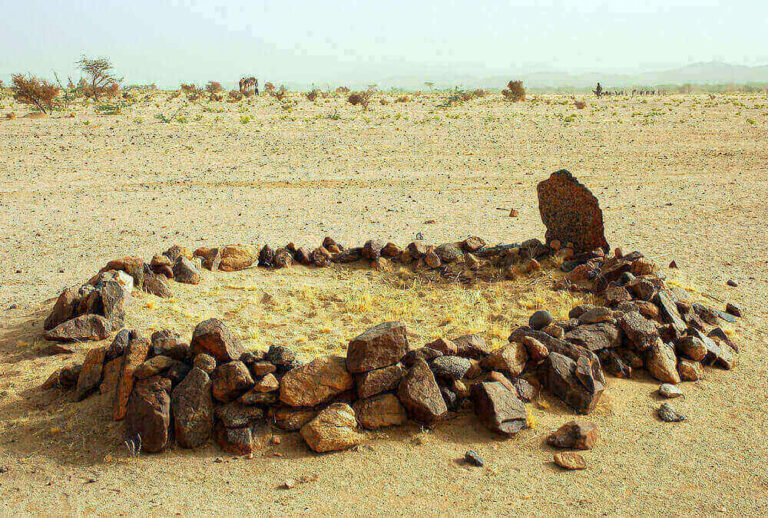إِنَّكَ لَا تَهْدِى مَنْ أَحْبَبْتَ وَلَـٰكِنَّ ٱللَّهَ يَهْدِى مَن يَشَآءُ ۚ وَهُوَ أَعْلَمُ بِٱلْمُهْتَدِينَ
“You surely cannot guide whoever you like ˹O Prophet˺, but it is Allah Who guides whoever He wills, and He knows best who are ˹fit to be˺ guided.” (28:56)
حَدَّثَنَا عَبْدُ بْنُ حُمَيْدٍ، أَخْبَرَنَا عَبْدُ الرَّزَّاقِ، أَخْبَرَنَا مَعْمَرٌ، عَنِ الزُّهْرِيِّ، عَنْ عُرْوَةَ، عَنْ عَائِشَةَ، قَالَتْ لَمْ يَتَزَوَّجِ النَّبِيُّ صلى الله عليه وسلم عَلَى خَدِيجَةَ حَتَّى مَاتَتْ.
“‘A’isha reported that Allah’s Apostle (ﷺ) did not marry any other woman till her (Khadija’s) death.” (Sahih Muslim 2436)
It was now the 10th year of Prophethood. The Muslims had left the valley of Abū Ṭālib and returned to Makkah. This year became known as the ‘Year of Sorrow’ due to the events which would occur in it. Just a few days after returning to Makkah, either in the month of Ramaḍān or Shawwāl, Abū Ṭālib passed away. And either 3 or 5 days after that, the wife and companion of Rasūlullāh (SAW), the first person to accept Islām, Khaḍījah (RA) also left this world.
The Death of Abu Talib
When Abū Ṭālib approached death, Rasūlullāh (SAW) came to Abū Ṭālib and found that Abū Jahal ibn Hishām and ʿAbdullāh ibn Abū Ummayah ibn Al-Mughayrah were with him. Rasūlullāh (SAW) said to Abū Ṭālib, “Oh uncle, say Lā ilāha illallāh, a word I will bear witness for you with it, with Allāh’. Abū Jahal and ʿAbdullāh ibn Abū Ummayah said to Abū Ṭālib, ‘Will you turn away from the religion of ʿAbdul Muṭṭalib?’ Rasūlullāh (SAW) continued to ask Abū Ṭālib, and Abu Jahal and ʿAbdullāh ibn Abū Ummayah kept on repeating what they were saying. Until the last words that Abū Ṭālib said were that he was on the religion of ʿAbdul Muṭṭalib and refused to say the kalimah. Rasūlullāh (SAW) said I will continue to ask forgiveness for you unless I am forbidden by Allāh (SWT) to do so.
Allāh (SWT) then revealed verse 113 of Sūrah At-Taubah:
“It is not for the Prophet and those who believe that they seek forgiveness for the Polytheists, even if they were relatives, after it has become clear to them that they are the companions of the fire.”
The Burial of Abu Talib
Alī (RA) came to Rasūlullāh (SAW) and said, ‘Indeed Abū Ṭālib has died’. Rasūlullāh (SAW) told him to go and bury him. We must remember that Abū Ṭālib was ʿAlī (RA) father. ʿAlī said, ‘He died as a polytheist’. Rasūlullāh (SAW) again told him to go and bury him. After ʿAlī (RA) had buried him, he returned to Rasūlullāh (SAW) who then told him to bathe.
It goes without saying that Abu Talib was very much attached to Rasulullah (SAW). For forty years, Abu Talib had been the faithful friend- the prop of his childhood, the guardian of his youth and in later life a very tower of defence. The sacrifices to which Abu Talib exposed himself and his family for the sake of his nephew, shows his character as noble and unselfish.
Either 3 or 5 days later, the Messenger of Allah (SAW) experience another great personal loss, the mother of believers, his wife Khadijah (RA) passed away in Ramadan of the 10th year of his Prophethood when she was sixty-five years old, and he was fifty. Khadijah (RA) was in fact a blessing of Allah for the Prophet (SAW). She, for twenty-five years, shared with him the toils and trails of life, especially in the first ten years of his prophethood. He deeply mourned over her death.
These two painful events took place within a short lapse of time and added a lot to his grief and suffering. The death of Abu Talib rendered the Prophet (SAW) vulnerable and the Makkans now openly declared their campaign of torture and oppression.
The Prophet (SAW) marries Saudah (RA) and Aisha (RA)
About one month after the death of Khadijah (RA), the Prophet (SAW) married Saudah bint Zam‘a (RA) in the month of Shawwal. Saudah (RA) had previously been married to her cousin, Sakran bin Amr. The couple had been among the early Muslims who had migrated to Abyssinia. After returning to Makkah, Sauda’s husband died. At the end of her period of mourning, the Prophet (SAW) married her.
A year later the Prophet (SAW) married Aishah (RA) in the month of Shawwal. This marriage was also solemnized in Makkah. At the time, Aishah (RA) was only six years old; however, she was sent as a bride to the Prophet (SAW) when she was nine. She was the most beloved wife of the Prophet and the greatest female scholar of Islam. The relationship between the Prophet (SAW) and her has given Muslims an insight into the Prophet’s role as a husband and the deep love he inspired in her. The camaraderie between them, the painful episode of the slander against Aishah (RA) and the confidences he divulged to her all give us insights into their rich, complex and profound relationship.
(The Sealed Nectar by Safiur-Rahman Al-Mubarakpuri)
(When the Moon Split: A biography of Prophet Muhammad by Safiur-Rahman Al-Mubarakpuri)
(Sirah of Muhammad (SAW) Part 6-The Middle Years of the Makkan Period by Maulana Ebrahim Noor)
